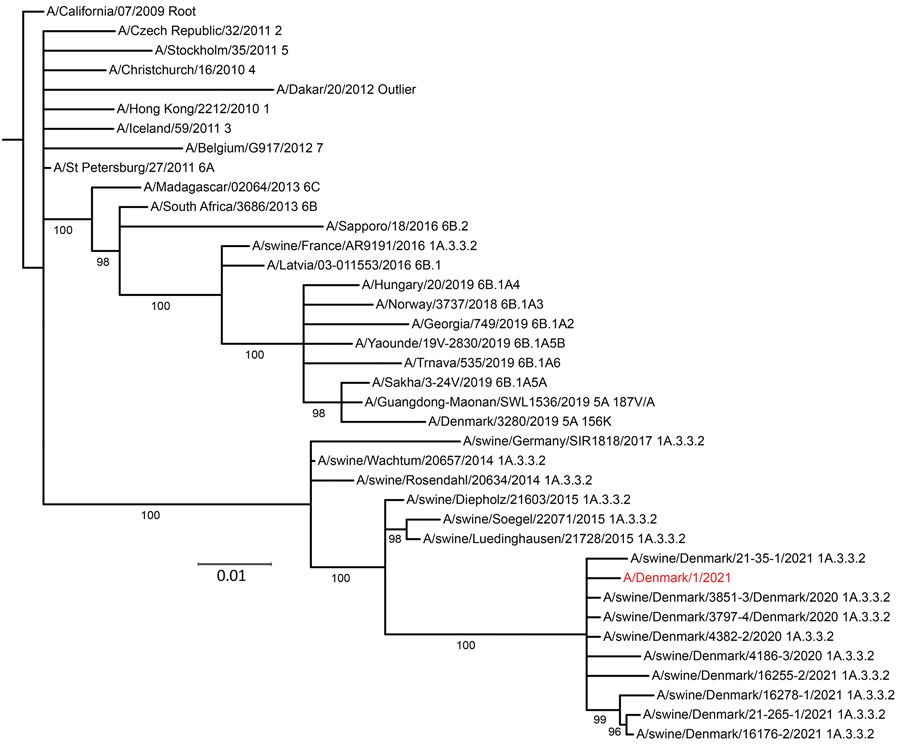Volume 27, Number 12—December 2021
Research Letter
Reassortant Influenza A(H1N1)pdm09 Virus in Elderly Woman, Denmark, January 2021
Figure

Figure. Maximum-likelihood phylogenetic tree of the hemagglutinin gene of influenza virus isolate A/Denmark/1/2021 (vH1N1) from a patient in Denmark (red) and reference viruses. The tree includes closest BLAST matches (https://blast.ncbi.nlm.nih.gov/Blast.cgi), the Denmark swine influenza virus with highest similarity to the case variant virus A/Denmark/1/2021 (indicated in red), and human seasonal reference viruses and is rooted on A/California/07/2009. Leaves are labeled by isolate name and clade designation. Branch labels indicate UFBoot2 bootstrap values. All uncertain branches (bootstrap <95%) have been removed. Scale bar indicates nucleotide substitutions per site.
Page created: October 28, 2021
Page updated: November 21, 2021
Page reviewed: November 21, 2021
The conclusions, findings, and opinions expressed by authors contributing to this journal do not necessarily reflect the official position of the U.S. Department of Health and Human Services, the Public Health Service, the Centers for Disease Control and Prevention, or the authors' affiliated institutions. Use of trade names is for identification only and does not imply endorsement by any of the groups named above.